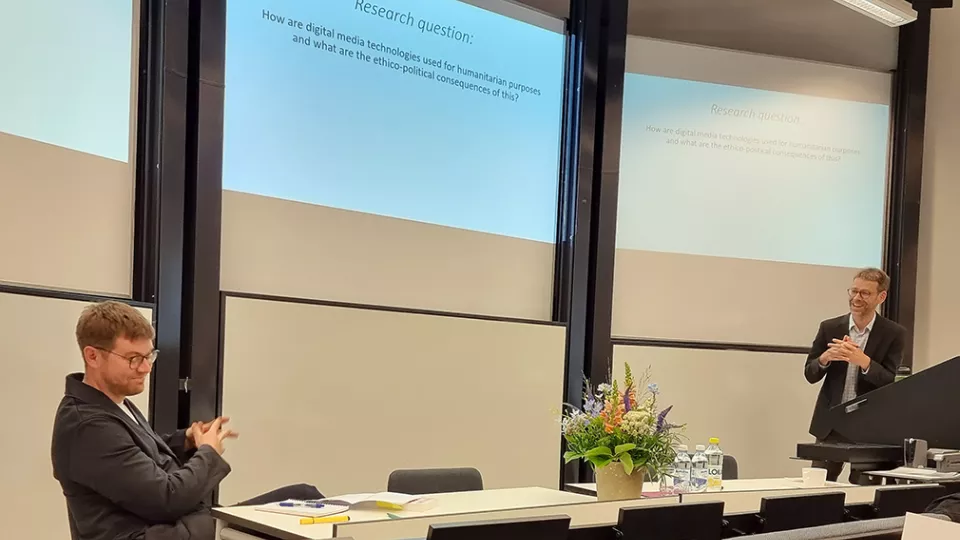External reviewer is Associate Professor Andrew A.G. Ross, Ohio University
Link to the thesis at Lund University Research Portal
Main supervisor: Professor Catarina Kinnvall, Department of Political Science, Lund University
Assistant supervisor: Associate Professor Ted Svensson, Department of Political Science, Lund University
External reviewer: Associate Professor Andrew A.G. Ross, University of Ohio
The digital revolution in humanitarian affairs
Humanitarian organisations are central actors in the mediation of humanitarian disasters as objects of public, political and moral concern. If we want to understand this key dynamic of world politics we thus also have to understand how aid organisations use media. But whereas the extant literature about media and global humanitarianism focuses primarily on issues related to discourses and images of distant suffering in mass media, contemporary humanitarianism is incomprehensible without a detailed understanding of the many new digital media technologies through which the suffering of Global South others is increasingly witnessed, pitied and responded to by caring publics in the Global North.
A postphenomenological perspective
The thesis bridges this gap in the scholarly literature by critically examining three examples of digital media technologies that have recently caught the attention of humanitarian organisations: social media, virtual reality and donation apps. It analyses these cases from a postphenomenological perspective, supplemented by key insights from science & technology studies and critical theory, which opens up analyses of the digital mediation of global humanitarianism to questions about power at the intersection of the technological materialities of digital media and the imaginaries invested into them by the aid industry. Based on this, Daniel’s thesis ultimately uncovers the specific and sometimes-problematic ways in which the visibility of humanitarian disasters, the emotional engagement of caring publics and everyday forms of humanitarian action are shaped in and through processes of digital mediation.
Toward new technopolitical visions
Based on this, the author proposes the term ‘the technopolitics of compassion’ to emphasise the global power asymmetries that are perpetuated and compounded by the aid sector’s use of digital media and argues that, even if the contemporary aid sector and its use of digital media is far removed from the historical dynamics of colonialism, it must still actively grapple with questions of inequality and subalternity, as these re-emerge through the digital mediation of global humanitarianism. Equally central to this argument, however, is the possibility of thinking about and using digital media differently. The thesis thus ends with an appeal to humanitarian organisations (and other relevant actors) to develop new technopolitical visions, which might help the aid industry mitigate the problems it identifies.


